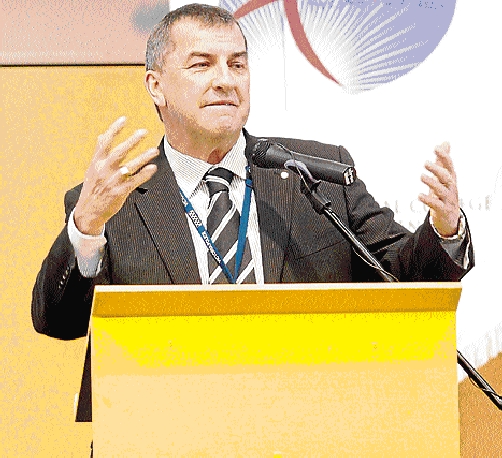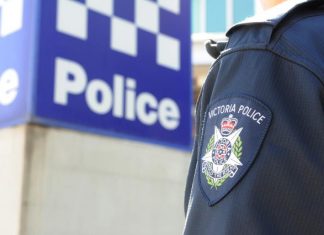POLICE, youth workers and educators have vowed to take a united approach to helping troubled young people following a youth violence summit in Caroline Springs.
Last Tuesday’s summit, ‘Keeping kids in the classroom and out of the courtroom’, was organised by youth worker Les Twentyman
in response to what he called “the growing rate of youth violence” gripping Melbourne’s north-west.
Senior police, educators, students and migrant leaders attended the meeting at the Catholic Regional College campus.
Detective Superintendent Pat Boyle said gang violence had reached unprecedented levels, and he urged the community to work together to tackle the issue. “Police can’t do it alone. We need teachers, the government and youth workers to work together on this,” he said.
Detective Superintendent Boyle said there were proven links between truancy and youth
gang violence.
“Teachers need to not only understand but be aware of what a gang presence looks like in the school environment and how to intervene.”
Catholic Regional College deputy principal Kelley Revelman said teachers were working with students to come up with ways to improve student attendance and connection to education.
“A traditional school environment is not perfect for all students,” she said. “A major benefit of the summit was for teachers to be aware of other services that are out there to assist troubled young people and to connect students to these services if they are in need.”
African community leader Abselom Nega, who attended the summit, said more than 200 troubled youths had sought help from youth education group iEmpower in the past year.
As the organisation’s chief executive, he said migrants and refugees were particularly vulnerable. “Our target group is mainly migrants and refugees, many of African background who may be discriminated against or disadvantaged due to poverty and learning difficulties.”
Mr Nega said he wanted a strategy in place so youth workers could work in schools and guide students on alternative pathways.
He also called for police to take a proactive approach and educate troubled youth about the legal and justice system, rather than inflicting harsh punishment.
Mr Twentyman said youth in the west were dealing with a “tidal wave of issues” and urged the state government, police and senior educators to step in. He called for alternative education centres to be established for troubled youth to keep them engaged through specialised learning.
“For many disadvantaged kids, life is like treading water or just waiting to drown. Just because these kids are disengaged doesn’t mean they have no brains; they just have no opportunity. Education gives you the power to make choices,” he said.







